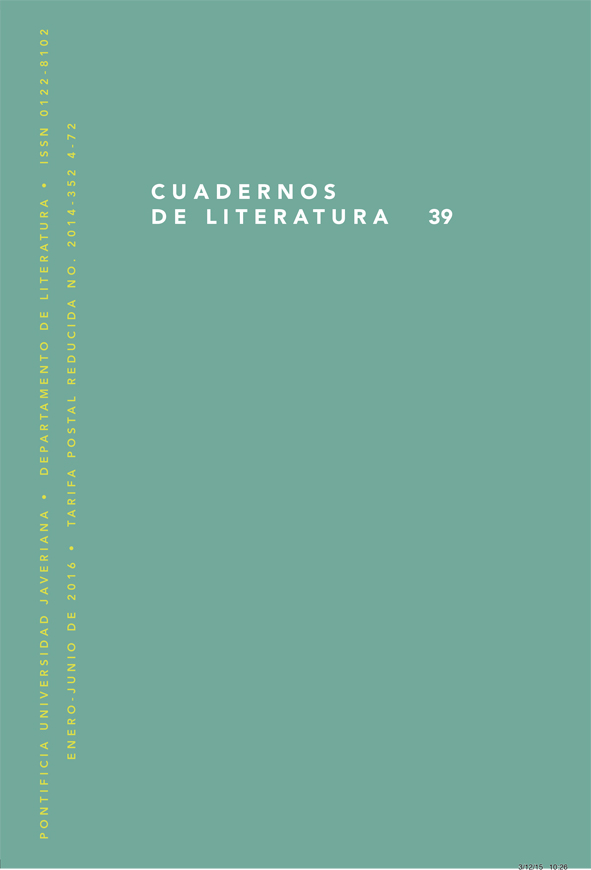Abstract
En su poema La cautiva (1837), Esteban Echeverría figuró el territorio denominado “desierto” como una mujer cautiva. Este ensayo explora, por un lado, las diversas tradiciones que confluyeron en la imagen de la cautiva y su potencia alegórica (el mito de Lucía Miranda, Atala de Chateaubriand, entre otras), a la vez que busca recomponer la asimilación entre territorio (desierto) y género (mujer cautiva) en la producción del propio Echeverría. Por otro lado, elabora la hipótesis de que no puede pensarse la caída del poder alegórico de la cautiva sin releer, en el marco de la literatura gauchesca y su peculiaridad, la reelaboración de la figura de la cautiva en La vuelta de Martín Fierro (1879) de José Hernández.
Cuadernos de Literatura is registered under a Creative Commons Attribution 4.0 International Public License. Thus, this work may be reproduced, distributed, and publicly shared in digital format, as long as the names of the authors and Pontificia Universidad Javeriana are acknowledged. Others are allowed to quote, adapt, transform, auto-archive, republish, and create based on this material, for any purpose (even commercial ones), provided the authorship is duly acknowledged, a link to the original work is provided, and it is specified if changes have been made. Pontificia Universidad Javeriana does not hold the rights of published works and the authors are solely responsible for the contents of their works; they keep the moral, intellectual, privacy, and publicity rights.
Approving the intervention of the work (review, copy-editing, translation, layout) and the following outreach, are granted through an use license and not through an assignment of rights. This means the journal and Pontificia Universidad Javeriana cannot be held responsible for any ethical malpractice by the authors. As a consequence of the protection granted by the use license, the journal is not required to publish recantations or modify information already published, unless the errata stems from the editorial management process. Publishing contents in this journal does not generate royalties for contributors.


